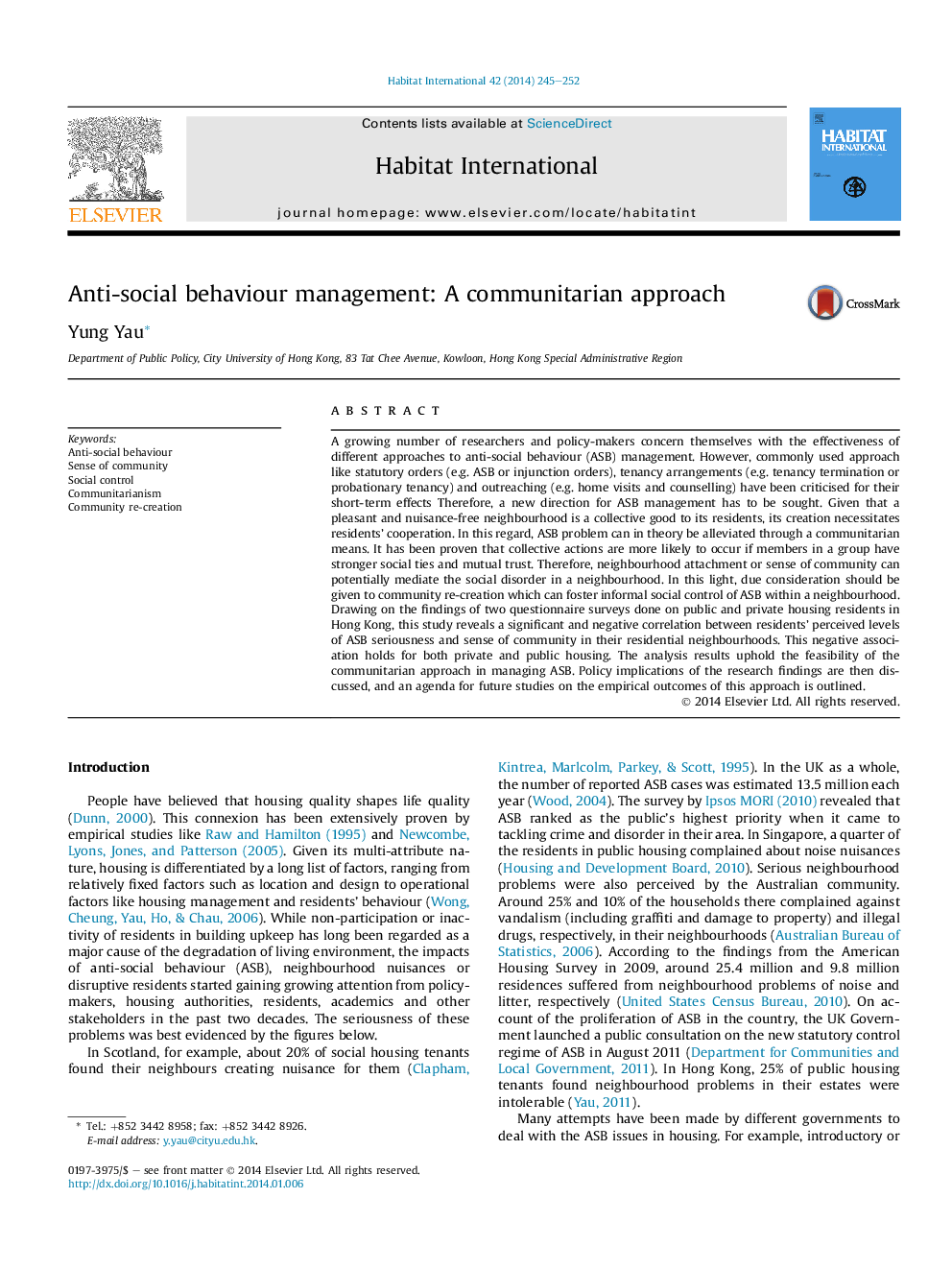| Article ID | Journal | Published Year | Pages | File Type |
|---|---|---|---|---|
| 1047979 | Habitat International | 2014 | 8 Pages |
•How sense of community affects perception of anti-social behaviour is explored.•Residents in public and private housing in Hong Kong were surveyed.•Stronger sense of community results in less severe anti-social behaviour problem.•The findings offer a solid foundation for the proposed community re-creation tactic.
A growing number of researchers and policy-makers concern themselves with the effectiveness of different approaches to anti-social behaviour (ASB) management. However, commonly used approach like statutory orders (e.g. ASB or injunction orders), tenancy arrangements (e.g. tenancy termination or probationary tenancy) and outreaching (e.g. home visits and counselling) have been criticised for their short-term effects Therefore, a new direction for ASB management has to be sought. Given that a pleasant and nuisance-free neighbourhood is a collective good to its residents, its creation necessitates residents' cooperation. In this regard, ASB problem can in theory be alleviated through a communitarian means. It has been proven that collective actions are more likely to occur if members in a group have stronger social ties and mutual trust. Therefore, neighbourhood attachment or sense of community can potentially mediate the social disorder in a neighbourhood. In this light, due consideration should be given to community re-creation which can foster informal social control of ASB within a neighbourhood. Drawing on the findings of two questionnaire surveys done on public and private housing residents in Hong Kong, this study reveals a significant and negative correlation between residents' perceived levels of ASB seriousness and sense of community in their residential neighbourhoods. This negative association holds for both private and public housing. The analysis results uphold the feasibility of the communitarian approach in managing ASB. Policy implications of the research findings are then discussed, and an agenda for future studies on the empirical outcomes of this approach is outlined.
